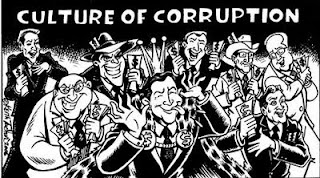Gaza NGOs... The Good, The Bad and the Ugly
Gaza NGOs... The Good, The Bad, and the Ugly
Civil society organizations are the main vehicle of social change and development in any society. They represent the overall civil society including every part of the social structure. In other words, civil society organizations reflect the situation of their society as well as its trends and values. Moreover, civil society organizations are considered as the guard of liberal-democratic concepts in the society. Their role is to preserve credibility and accountability and to stand against corruption as well as resisting bad governance through civilized means.
In Palestine, civil society organizations played and still playing significant role within several domains. About their contribution in resistence, civil society organization started resisting occupations since the early 1920s to the 1940s of the twentieth century. Islamic and Christian charitable societies, labor unions, youth clubs, and women's organizations stood strongly in the face of the British mandate and the illegal Zionist immigration to Palestine. After the 1948 Nakba, the work of Palestinian civil society organizations declined due to the occupation. Although difficult conditions at the time followed 1948 Nakba, new organizations started to emerge such as Palestinian General Federation of Students which established in 1959. The general orientation of these organizations was to resist occupation and to mainly focus on national issues.
In 1964, Palestinian Liberation Organization was established and recognized by the Arab states as the legal representative of Palestinian people. Basing on this, the PLO acted as an organization that has semi-state with semi-civil society structures. The work of tens of organizations that recognized as civil society organizations was totally contained and controlled by PLO. For this reason, the role of PLO-based civil society organization declined along with the retrogression of PLO role in the 1980s after Lebanon war.
This focus on national agenda caused some disconnection from the social agenda of the Palestinian society. In the late 1980s, some of the civil society organizations started paying attention to the social agenda. When they began to connect the national agenda with social one- their role became more professional and more effective. This combination resulted in new visions of how to preserve development, human rights, and civil liberties under such long continuing occupation. Grassroots organizations emerged with more concentration on particular specializations such as youth, gender, agricultural relief and development, and other significant issues such as prisoner's issue.
In 1994, the Palestinian Authority established and significant changes occurred. The main concentration of civil society organizations became strongly on the social agenda. As a result of NGOs growth, more health and education services began to be provided. Moreover, the internal agenda of the civil society began to include deeper issues such as democracy building, institution building, different approaches to development, PA violations of human rights, advocacy and lobbying, anti-militarization plans, and peace and non-violence projects.
The relationship between civil society organization and PA witnessed a lot of tension. This was due to NGO's role in standing against PA's violations of human rights and PA's financial and administrative corruption. However, the PA did not pay enough attention to civil society organizations. The political situation deteriorated mainly after the failure of Camp David talks in 2000 and the rise of the second Intifida. Consequently, it became impossible to the Palestinian civil organizations to operate effectively- particularly in Gaza Strip that was ruled by armed extremist groups and distinguished by high levels of chaos.
Years of chaos and instability culminated by a military coup took place in Gaza by Hamas after years of political tension with its rival Fatah movement. In the years of chaos, civil society organizations witnessed observable levels of financial and administrative corruption. The absence of law and accountability caused negative practices among these organizations. This led to a deteriorated role of the last stone in the valley of Palestinian civil society.
In my everyday work and dealing among Gaza NGOs, I observe high lack of accountability and credibility. Liking, favoritism, and misleading are forms distinguish some of the working NGOs in Gaza Strip. Moreover, some of the NGOs are misusing the international fund and dedicating it for serving the self-interests of their directors.
The following points are examples of the ongoing corruption among Gaza NGOs:
· Deducting proportions from employees' wages to be transferred to the account of an organization.
· Falsification in financial reports and bills.
· Exaggeration in presenting projects' required costs.
· Intentional ineffectiveness in implementation processes.
· Lack of accurate needs assessing and accurate targeting of beneficiaries.
Another disastrous problem also, is the intentional focus on aid projects while ignoring projects that promotes income-generating and employing people. Providing people with food and aid in return of their sitting at homes will decrease their productivity and will increase social problems among the Palestinian society.
Reasons
The main reason of this situation is the absence of effective monitoring and evaluation policies to be adopted by international funders, Palestinian formal bodies, and even the organizations themselves. Monitoring and evaluation is a necessary to stop this continuing situation. I think that the European tax payer will care about this issue, because I can see his or her money wasted here!


Comments
Post a Comment